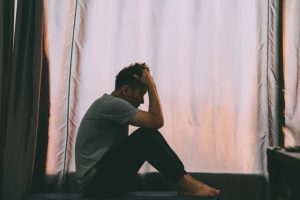How to Spot an Oxycodone Overdose
If you or someone you know may have overdosed on oxycodone, call 911 immediately. Oxycodone took control of my life. A few years ago, I started having back problems. I’d worked manual labor jobs since I was 19, and it caught up with me. I couldn’t take time off work because I had a family to provide for. I didn’t want to go to the doctor because I didn’t want to be told I’d need surgery. I’d found myself in a situation where I needed relief, and I needed it fast. A guy I worked with, who had similar problems, told me he’d found a solution: painkillers. I remember vividly the day he offered me one. I was willing to do anything to get rid of the pain, even if it was just temporary, so I took one. For the first time in I don’t know how long, I found the relief I was looking for. When I asked him what he’d given me, he told me it was oxycodone. He didn’t have a prescription but told me he could put me in touch with a guy who could “help” me. Looking back, I thought oxycodone was a miracle drug. I thought it solved all of my problems. That was, until it started wreaking havoc on nearly everything in my life. I became dependent on oxycodone. I needed more and more of it to feel its effects. In turn, that led to the darkest point of my life. One night, I’d taken too much, and I overdosed. My wife found me in the bathroom, and thankfully, it was just in time. Emergency personnel simply told her I was very lucky. Now that I’ve shared my story, I want you to know that there is more to life than oxycodone, and if you are struggling with addiction, help is out there. Do not let yourself get to the point I did. It’s not worth it. You have a full life to live. So, let’s take a look at the dangers of oxycodone overdose, how you can prevent it, and how you can defeat addiction.
A Look at Oxycodone Overdose
If you or someone you know may have overdosed on oxycodone, call 911 immediately. According to the Drug Enforcement Administration (DEA), oxycodone is a ”semi-synthetic opioid drug prescribed for pain as Tylox, Percodan, OxyContin. Derived from the poppy plant, oxycodone has a high potential for misuse.” In 2019, there were 477 prescription opioid overdose deaths in the state of Ohio. That is far too many, which is why highlighting the dangers of the drug is so important. Oxycodone typically comes in the form of tablets or pills that are chewed or swallowed, heated up to inhale the vapors, crushed and sniffed, or dissolved in water and injected. On the streets, oxycodone is referred to as:
- Hillbilly heroin
- OC
- Kicker
- Roxy
- Ox
- Perc
- Oxy
There are various reasons people become addicted to or misuse oxycodone. However, the main reason is that it causes feelings of pleasure, relaxation, and offers pain relief. Over time, you’ll need more and more of the drug to feel the desired effects. This can lead to health dangers, including overdose. The U.S. National Library of Medicine defines overdose as “taking more than the normal or recommended amount of something, often a drug. An overdose may result in serious, harmful symptoms or death. If you take too much of something on purpose, it is called an intentional or deliberate overdose. If the overdose happens by mistake, it is called an accidental overdose. For example, a young child may accidentally take an adult’s heart medicine.” Signs of oxycodone overdose include:
- Loss of appetite
- Vomiting
- Nausea
- Sweating
- Stomach pain
- Confusion
- Weakness
- Pain in upper stomach
- Dark urine
- Yellowing of skin or whites of eyes
- Muscle weakness
- Extreme sleepiness
- Very slow breathing
- Coma
According to the World Health Organization (WHO), “Death following opioid overdose is preventable if the person receives basic life support and the timely administration of the drug naloxone [Narcan]. Naloxone is an antidote to opioids that will reverse the effects of an opioid overdose if administered in time. Naloxone has virtually no effect in people who have not taken opioids.” It’s also important to note that some people may be more prone to oxycodone overdose than others.
Who Is at Risk for Oxycodone Overdose?
While anyone can overdose on oxycodone, certain people might be more at risk than others, according to the WHO. “Males, people of older age and people with low socio-economic status are at higher risk of opioid overdose than women, people of young age groups and people with higher socioeconomic status,” WHO says. Other people who may be at a higher risk include:
- Those who inject oxycodone
- Those who have opioid use disorder
- Those who use oxycodone without medical supervision
- Those who resume oxycodone use after an extended period of not using it
- Those who are prescribed high doses of oxycodone
- Those who use oxycodone with other substances such as alcohol or benzodiazepines
- Those who have medical conditions such as HIV, liver diseases, or lung diseases
Another factor that may increase the likelihood of overdose is whether or not oxycodone is mixed with fentanyl, a drug that is reportedly 50-100 times more potent than morphine. The WHO explains, “There is evidence that drug dealers may be adding fentanyl to increase the potency of their products (such as heroin) and selling fentanyl as counterfeit tablets, created to look like authentic prescription medications. Therefore, many users who test positive for fentanyl and its analogues do not realize that they took the substance.”
What Is Opioid Use Disorder (OUD)?
According to the American Psychiatric Association, “Opioids produce high levels of positive reinforcement, increasing the odds that people will continue using them despite negative resulting consequences. Opioid use disorder is a chronic lifelong disorder, with serious potential consequences including disability, relapses, and death.” Signs of OUD include:
- Taking more opioids than intended
- Constant cravings for opioids
- Taking opioids despite the problems they cause in your personal and professional life
- Taking opioids despite the health problems they might be causing
- Spending large amounts of time recovering from opioid use
- Using opioids in hazardous conditions
- Building up a tolerance to opioids
- Experiencing withdrawal when not taking opioids
When you withdraw from opioids, you may experience cramps, chills, diarrhea, dilated pupils (black centers of the eyes enlarged), anxiety, restlessness, insomnia (sleeplessness), vomiting, and intense cravings.
How Is Medication-Assisted Treatment Used to Treat OUD?
According to the U.S. Food and Drug Administration (FDA), “Medication-assisted treatment (MAT) is the use of medications in combination with counseling and behavioral therapies, which is effective in the treatment of opioid use disorders (OUD) and can help some people to sustain recovery.“ To this day, millions of people battling OUD are searching for care and support. That said, the ultimate goal of MAT is to improve survival rates, keep people in treatment, decrease illegal opioid use, improve the ability to maintain or gain employment, and improve birth outcomes for women. Three drugs have been approved to treat OUD, and they’ve proved to be beneficial. Medications currently approved include buprenorphine, methadone, and naltrexone. All three of these medications have been demonstrated to be safe and effective when combined with counseling and behavioral health support, the FDA says. Additionally, MAT has been shown to help lower the risk of contracting HIV and hepatitis C.
You Are More Than Your Addiction
If you needed help with something at work, you’d ask a boss or co-worker for help—especially if you’ve never had experience with a specific task. The same steps should be taken to address addiction. By seeking professional treatment, you can learn what contributes to your addiction, how you can overcome it, and how you can spend the rest of your life in recovery. There is no shame in reaching out for help. It doesn’t make you any less of a human being. We all struggle from time to time, and we all need help getting through it. It actually takes strength and courage to admit you need help. The first step on your journey may be the hardest one to take, but it is worth it in the end. When you find someone who walks with you every step of the way, you’ll realize you’re never alone. By finding a professional treatment program, you’ll find just that.
Treat Your Oxycodone Addiction Today
Here at The Bluffs, we understand your situation is unique, which is why we create treatment plans just for you. Our inpatient oxycodone addiction treatment will address the symptoms of your addiction and daily-life contributors that may affect it. We use evidence-based treatments like cognitive behavioral therapy and dialectical behavior therapy to help change thoughts and behaviors that lead to unwanted or unhealthy habits. We also offer recreational activities as a healthy alternative to oxycodone use. No one should ever have to face addiction alone. Whether it’s you or a loved one, we’re here to help every step of the way. Don’t let addiction control your life. Call us today at (888) 481-7821.
Frequently Asked Questions
What is opioid use disorder (OUD)? OUD is a chronic lifelong disorder with serious potential consequences including disability, relapses, and death. Signs of OUD include:
- Taking more opioids than intended
- Constant cravings for opioids
- Taking opioids despite the problems they cause in your personal and professional life
- Taking opioids despite the health problems they might be causing
- Spending large amounts of time recovering from opioid use
- Using opioids in hazardous conditions
- Building up a tolerance to opioids
- Experiencing withdrawal when not taking opioids
How quickly can I become dependent on opioids? According to the American Psychiatric Association, opioid dependence can occur after just four to eight weeks of use. You may also experience oxycodone withdrawal when you become dependent on opioids. This occurs when you stop taking opioids abruptly. When you withdraw from opioids, you may experience cramps, chills, diarrhea, dilated pupils (black centers of the eyes enlarged), anxiety, restlessness, insomnia (sleeplessness), vomiting, and intense cravings. What is an overdose? An overdose is described by the U.S. National Library of Medicine as “taking more than the normal or recommended amount of something, often a drug. An overdose may result in serious, harmful symptoms or death. If you take too much of something on purpose, it is called an intentional or deliberate overdose. If the overdose happens by mistake, it is called an accidental overdose. For example, a young child may accidentally take an adult’s heart medicine. What medications are used to treat OUD? The three medications approved to treat OUD are buprenorphine, methadone, and naltrexone. The FDA explains that each of these medications has been demonstrated to be both safe and effective when combined with counseling and behavioral health support. They are part of medication-assisted treatment (MAT), which combines behavioral therapy and medications to treat OUD. MAT, as a whole, has also been proven to be effective in treating OUD.








